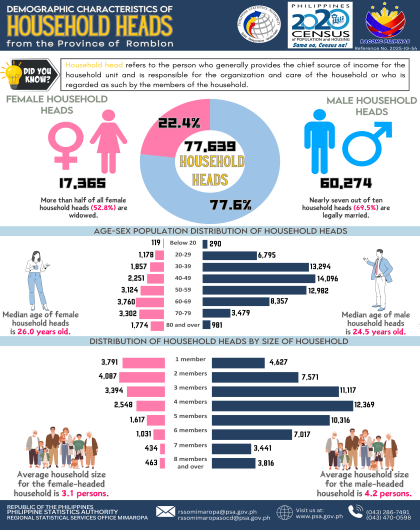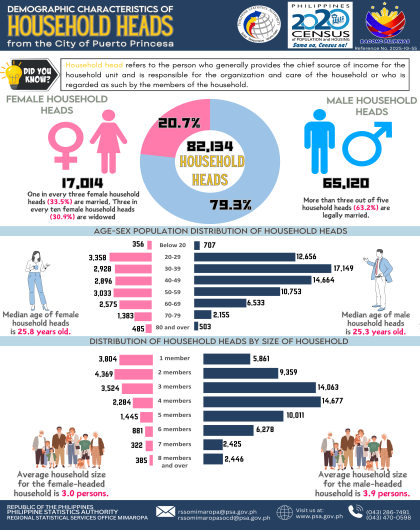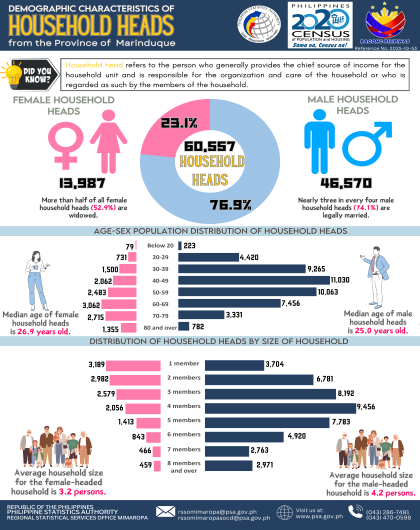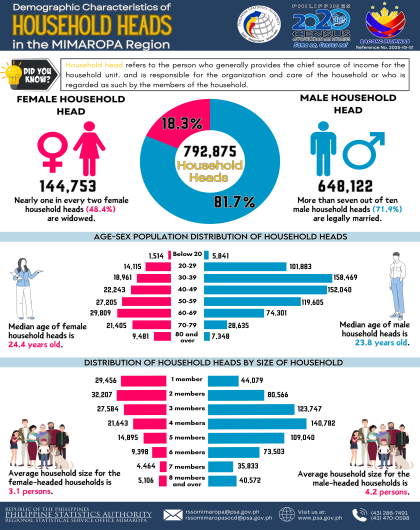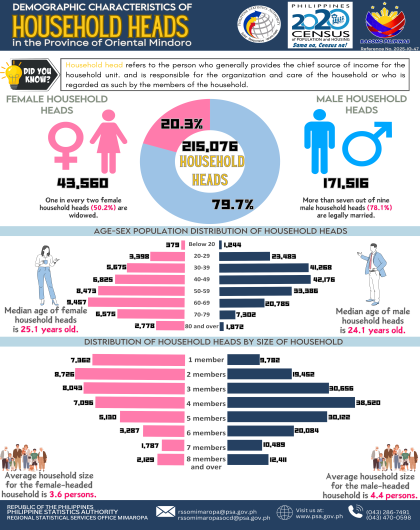Regional population reaches 3.245 million people
The Philippine Statistics Authority (PSA) announced today that, based on the 2024 Census of Population (2024 POPCEN), the total population of the MIMAROPA Region as of 01 July 2024 is 3,245,446. This accounts for about 2.88 percent of the Philippine population. (Table 1 and Table A)

This count has been declared official for all purposes by the President of the Philippines through Proclamation No. 973 dated 11 July 2025, pursuant to Republic Act No. 10625, or the Philippine Statistical Act of 2013, and Executive Order No. 87, s. 2025. These mandate the conduct of periodic censuses to provide government planners, policymakers, and administrators with essential data for crafting social and economic development plans and programs.
This official population count reflects the total number of persons living in all provinces and highly urbanized city in the MIMAROPA Region as of 12:01 AM on 01 July 2024.
Regional population growth rate decelerates to 0.13 percent
Compared to the 2020 Census of Population and Housing (2020 CPH), the region’s population in 2024 increased by 16,888 individuals from official population count of 3,228,558 people in 2020. (Figure 1)
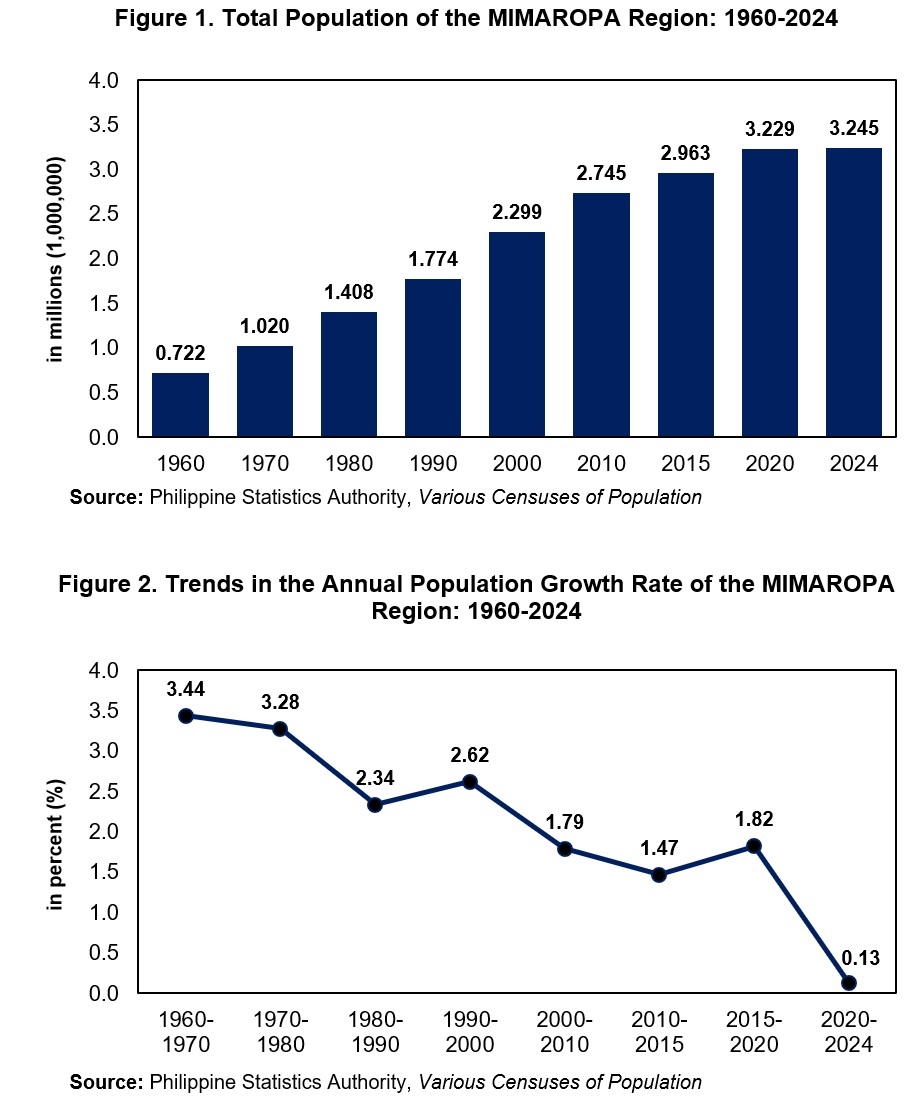
The regional population growth rate (PGR) slowed to 0.13 percent annually from 2020 to 2024. The rate at which the region’s population grew from 2015 to 2020 was higher at 1.82 percent. The slowdown in the growth rate may be driven by several interrelated factors such as but not limited to declining fertility and birth rate, elevated mortality during the COVID19 pandemic, and subdued migration activity. (Figure 2)
Palawan and Oriental Mindoro are the most populous provinces in the region
Among the five provinces in the region, Palawan (excluding the City of Puerto Princesa) recorded the largest population in 2024 with 968,795 people. This was followed by Oriental Mindoro with 919,504 people. The combined population of these two provinces accounts for about 58.18 percent of the regional population. (Figure 3)
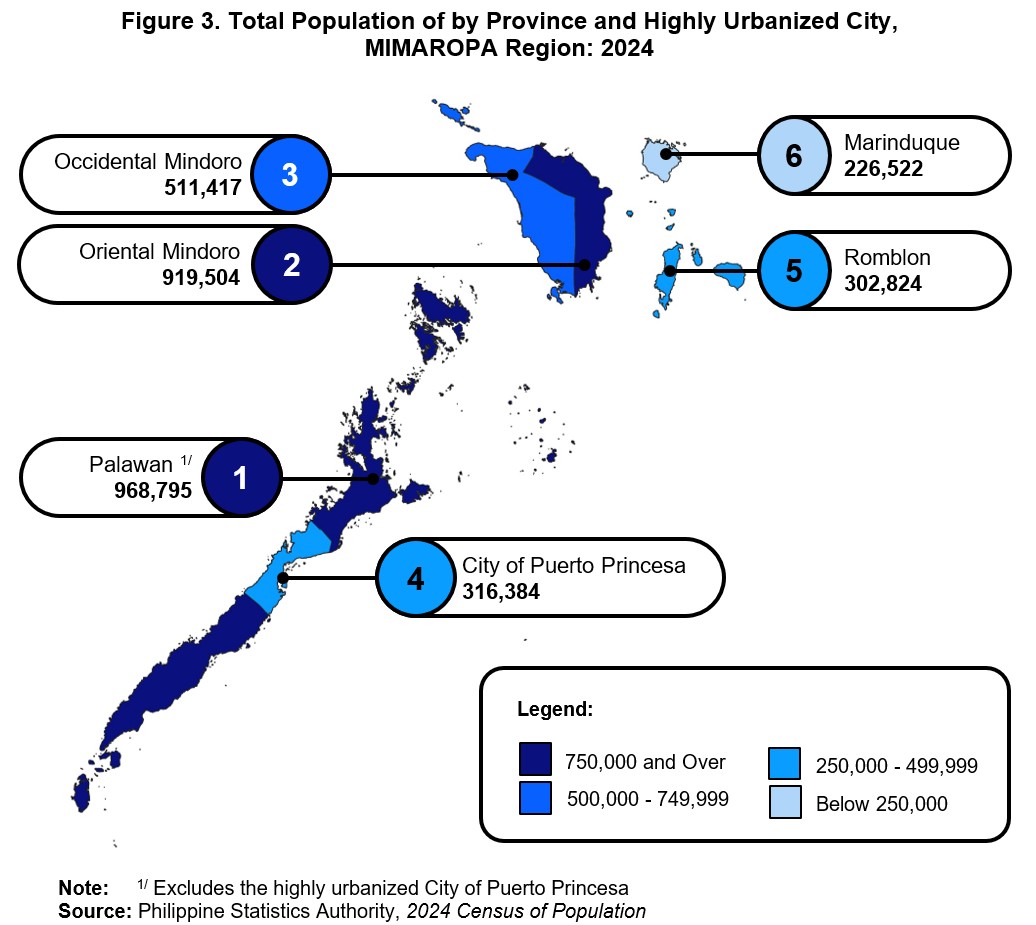
In addition, the lone highly urbanized City of Puerto Princesa in the region posted a population of 316,384 people. Meanwhile, the least populated province is Marinduque with 226,522 or 6.98 percent of the regional total population. (Figure 3)
Palawan still is the fastest growing province despite PGR slowdown
Two provinces and one highly urbanized city experienced a slowdown in annual PGR from 2015-2020 to 2020-2024, indicating a downward trend across a significant portion of the region. Palawan (excluding the City of Puerto Princesa) remained to be the fastest growing province with an annual PGR from 2020-2024 of 0.74 percent. It is followed by City of Puerto Princesa and Oriental Mindoro with an annual PGR of 0.72 percent and 0.29 percent, respectively. (Figure 4)
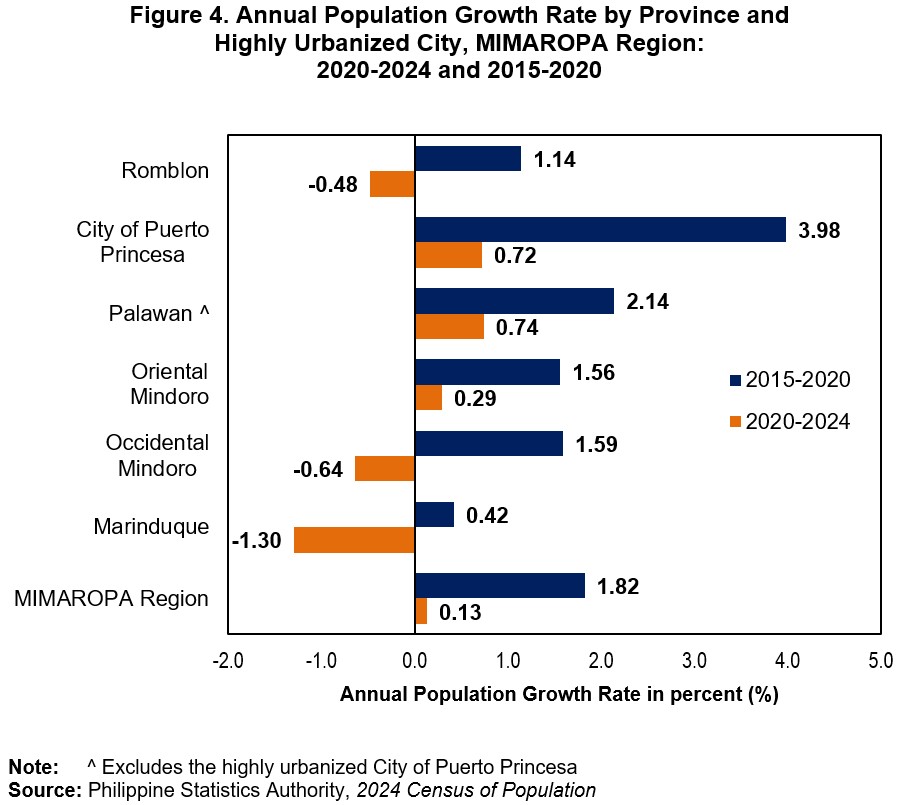
Meanwhile, Marinduque, Occidental Mindoro and Romblon were the provinces in the region that experienced a decline in the population within the four-year period. Of these provinces, Marinduque had the lowest PGR at -1.30 percent, while Occidental Mindoro and Romblon posted a negative growth at -0.64 percent and -0.48 percent, respectively. (Figure 4)
Tables A and B of this Special Release provide statistical summaries on the population count and annual PGR for the MIMAROPA Region and its provinces, cities, and municipalities based on various censuses. The most recent population data as of 01 July 2024 are available at: https://psa.gov.ph/statistics/population-and-housing.
The PSA extends its deepest appreciation to the public for their continued support and participation in the 2024 POPCEN. This census marks the 16th Census of Population in the Philippines since the first census in 1903.
(SGD) LENI R. RIOFLORIDO
Regional Director
MLLM / RRL


